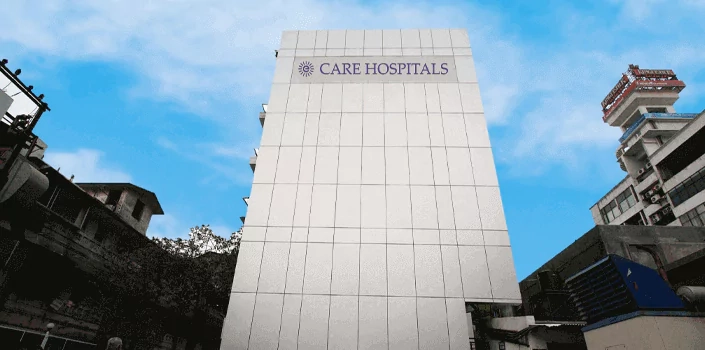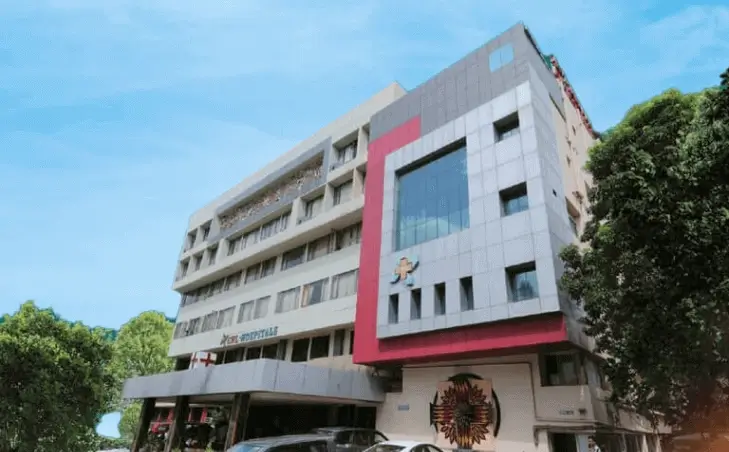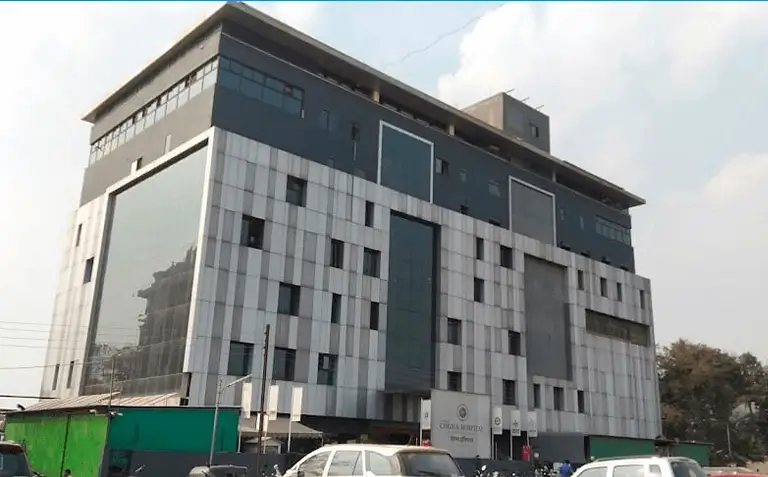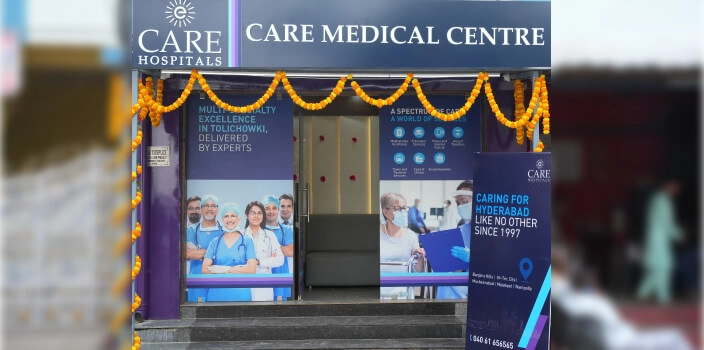-
Doctors
-
Specialities & Treatments
Centre of Excellence
Specialties
Treatments and Procedures
Hospitals & Directions HyderabadCARE Hospitals, Banjara Hills CARE Outpatient Centre, Banjara Hills CARE Hospitals, HITEC City CARE Hospitals, Nampally Gurunanak CARE Hospitals, Musheerabad CARE Hospitals Outpatient Centre, HITEC City CARE Hospitals, Malakpet
HyderabadCARE Hospitals, Banjara Hills CARE Outpatient Centre, Banjara Hills CARE Hospitals, HITEC City CARE Hospitals, Nampally Gurunanak CARE Hospitals, Musheerabad CARE Hospitals Outpatient Centre, HITEC City CARE Hospitals, Malakpet Raipur
Raipur
 Bhubaneswar
Bhubaneswar Visakhapatnam
Visakhapatnam
 Nagpur
Nagpur
 Indore
Indore
 Chh. Sambhajinagar
Chh. SambhajinagarClinics & Medical Centers
Book an AppointmentContact Us
Online Lab Reports
Book an Appointment
Consult Super-Specialist Doctors at CARE Hospitals

Best Hospital for Cataract Surgery in Hyderabad
- Advanced Technology
- Shorter Hospital Stay
- Pre & Post-Operative Care
- All Insurance Accepted

Chat With Our Experts
Get second opinion on Whatsapp
25 lakhs+
Happy Patients
Experienced and
skilled surgeons
17
Health Care Facilities
Top most Referral Centre
for Complex Surgeries
Advanced Cataract Surgery
Doctors perform cataract surgery more than any other medical procedure worldwide, with millions of operations each year. This detailed guide walks you through everything about cataract treatment surgery—from preparing for the operation to the recovery steps. The resource helps patients make informed decisions about their eye health at CARE Hospitals, whether they need original information or are preparing for surgery.
Why CARE Group Hospitals is Your Top Choice for Cataract Surgery in Hyderabad
CARE Hospitals ranks as one of Hyderabad's top medical facilities, with its Department of Ophthalmology delivering exceptional eye care services.
Skilled eye physicians and surgeons make up the ophthalmology team that treats various eye conditions, including cataract.
The hospital shines in cataract surgery, one of the most common surgical procedures. Patients at CARE Hospitals get access to:
- Advanced diagnostic capabilities for precise eye examinations
- State-of-the-art laser treatment facilities
- Expert surgical interventions for various eye conditions
- Detailed post-operative care
The hospital's eye specialists excel at both diagnosis and surgery. They perform several procedures, including:
- Routine cataract surgeries
- Complex eye surgeries
- Laser treatments
- Orbital surgeries
Best Cataract Surgery Doctors in India


Cutting-edge Surgical Innovations at CARE Hospital
CARE Hospital's modern surgical breakthroughs have made cataract surgery safer and more precise. The ophthalmology department uses Femtosecond Laser-Assisted Cataract Surgery (FLACS), which improves surgical accuracy with computer-guided technology.
FLACS uses near-infrared light to soften and break up cataracts. This reduces the need for ultrasonic energy during the procedure. The bladeless, computer-controlled system automates complex surgical steps to make the process safer for patients.
The hospital's micro-invasive cataract surgery uses incisions smaller than 2mm to ensure minimal eye trauma. This technique offers several benefits:
- Faster healing time
- Reduced risk of complications
- Better patient comfort
- Minimal scarring
Conditions for Cataract Surgery
Doctors usually suggest cataract surgery when cloudy lenses start to disrupt daily life and cause major vision problems.
Signs that indicate surgery might be needed:
- Reduced best-corrected visual acuity
- Disabling glare sensitivity
- Decreased contrast sensitivity
- Difficulty recognising faces
- Impaired colour discrimination
- Problems with reading or watching television
- Challenges with driving, especially during daylight hours
Types of Cataract Surgery Procedures
Cataract removal techniques have improved greatly, giving patients many options based on their eye conditions. Doctors now commonly use phacoemulsification, which uses ultrasound technology to break down and remove cloudy lenses.
A surgeon starts the phacoemulsification process by making a tiny corneal incision. They insert a needle-thin probe through this opening to send ultrasound waves that break up the cataract. The fragments are then suctioned out while keeping the lens capsule intact, which later holds the artificial lens.
Extracapsular cataract extraction needs a bigger incision than phacoemulsification. Surgeons remove the front capsule and cloudy lens as one piece. While not as common now, this method helps patients with specific eye complications.
Some cases need unique approaches when standard methods aren't enough:
- Intracapsular Cataract Extraction (ICCE): This older surgical method takes out both the affected lens and surrounding capsule. ICCE isn't used much today because it carries higher risks of complications.
- Laser-assisted Cataract Surgery (LACS): This modern approach combines laser precision with traditional phacoemulsification benefits. Surgeons start with 3D imaging of the eye and use computer-guided laser incisions. The method is more precise as it doesn't need manual blades.
- Refractive Lens Exchange: This option works great for patients who have both cataracts and vision problems like myopia or hyperopia.
Know The Procedure
Successful cataract surgery needs proper preparation and careful planning.
Pre-surgery Preparation
Your ophthalmologist will check your eyes to make sure there aren't any other issues. Here's what patients need to know:
- People who wear contact lenses must stop using them at least three days before surgery.
- Fast for 12 hours before the procedure
- Skip makeup, facial lotions, or aftershave on surgery day
- Wear comfortable, loose-fitting clothing
- Get someone to drive you home after surgery
Cataract Surgical Procedure
Most surgeries take just 10 to 15 minutes. Your surgeon starts with eye drops to dilate your pupil and gives you local anaesthesia to numb the area. You'll stay awake during the procedure but feel comfortable and only see some colourful lights.
The surgical steps include:
- Making a tiny corneal incision
- Breaking up the cloudy lens using ultrasound waves
- Removing the cataract fragments through suction
- Implanting the new intraocular lens
- Securing the incision without stitches
Post-surgery Recovery
Your doctor will give you a protective eye shield and detailed instructions after surgery. The following are some precautions after cataract surgery:
- Wear protective eyewear during the daytime
- Use an eye shield while sleeping for one week
- Avoid bending or lifting heavy objects
- Keep soap and water away from the operated eye
- Follow prescribed eye drop schedules
Risks and Complications of Cataract Surgery
Patients need to understand the risks of cataract surgery to make informed decisions. Complications don't happen often, but factors like age, existing conditions, or previous eye surgeries can increase the risks. These include:
- Right after surgery, patients may feel mild discomfort and notice changes in their vision.
- Blurry vision could last for days or weeks.
- The surgical cuts can affect tear-producing nerves and lead to dry eyes.
- Many patients describe a sandy feeling in their eyes that usually goes away within a week.
- Patients might also notice halos and glare around lights, which show up more in dark conditions.
These serious complications are rare but need immediate medical care:
- Posterior capsule tears during surgery
- Retinal detachment
- Severe eye infection
- Permanent vision loss
- Artificial lens displacement
- Additional complications include:
- Corneal swelling
- Elevated eye pressure
- Drooping eyelid
- Macular oedema, affecting 1-5% of patients
- Allergic reactions to prescribed eye drops
Benefits Of Cataract Surgery
New studies show remarkable improvements in patients' lives after cataract surgery. Research shows removing cataracts helps improve several areas of daily life:
- Enhanced Mental Health: Studies show better psychological health in hired patients' physical health, social relationships, and environment
- Increased Independence: People go back to activities they once avoided - reading, driving, and watching movies
- Reduced Fall Risk: Better vision is a vital benefit for older adults as it lowers their chance of falling
- Improved Cognitive Function: Study reveals substantial improvements in cognitive and emotional well-being after first and second eye surgeries
Insurance Assistance for Cataract Surgery
Most health insurance plans in India cover cataract procedures. The coverage includes doctor's fees, operation theatre charges, and surgical appliance costs.
Insurance coverage typically includes:
- In-patient hospitalisation expenses
- Daycare procedures
- Pre-hospitalisation expenses
- Post-hospitalisation expenses
Second Opinion for Cataract Surgery
Getting a second opinion before cataract surgery helps patients make better decisions about their eye health. Another expert's point of view gives you several benefits:
- Confirm if and when you need surgery
- Shows you other treatment choices
- Confirms the first diagnosis
- Makes you more confident about your treatment decisions
- Lets you learn about different surgical methods
Conclusion
Cataract surgery transforms lives with amazing success rates. CARE Hospitals delivers great results by using state-of-the-art technology and skilled surgeons who provide detailed patient care. Each patient gets a custom treatment plan, modern surgical techniques, and strong post-operative support.
The hospital's proven record of successful surgeries and detailed support services helps patients see clearly and live better. Patients who need reliable cataract care will find that CARE Hospitals handles both standard and complex cases expertly.
Cataract Surgery Hospitals in India
-
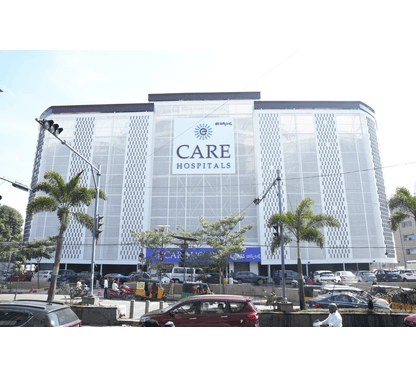
CARE Hospitals, Banjara Hills, Hyderabad
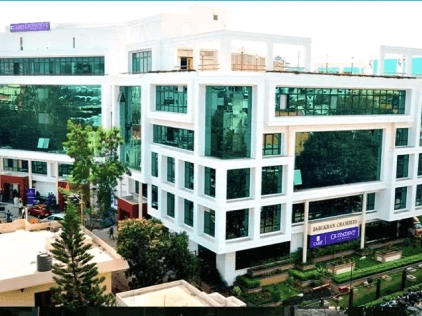
CARE Hospitals Outpatient Centre, Banjara Hills, Hyderabad
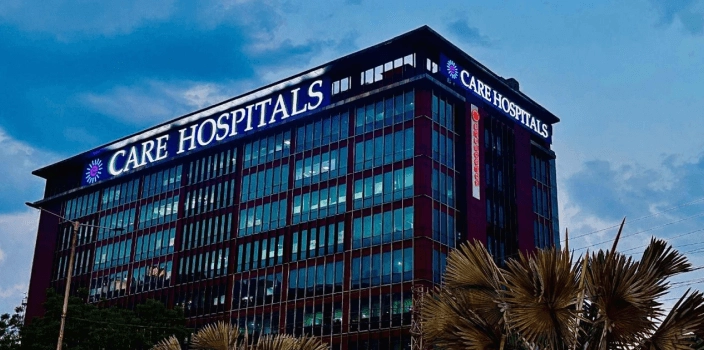
CARE Hospitals, HITEC City, Hyderabad
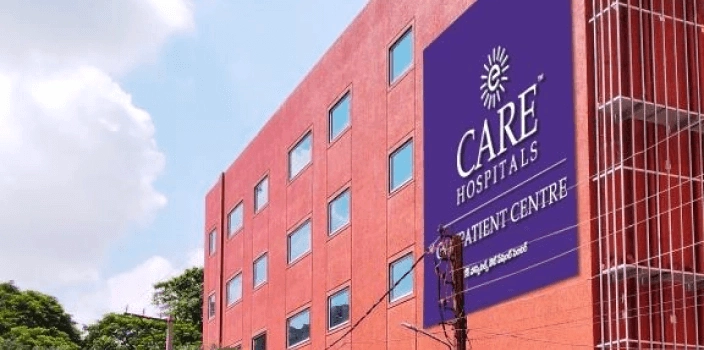
CARE Hospitals Outpatient Centre, HITEC City, Hyderabad
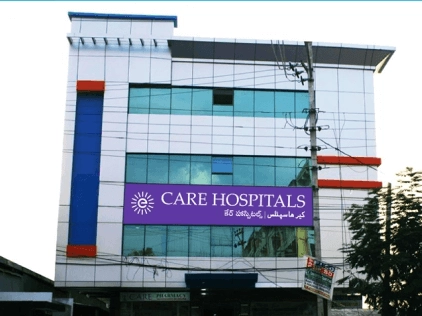
Gurunanak CARE Hospitals, Musheerabad, Hyderabad

CARE Hospitals, Nampally, Hyderabad
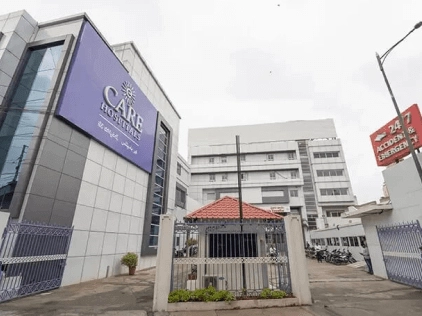
CARE Hospitals, Malakpet, Hyderabad

CARE Hospitals, Bhubaneswar
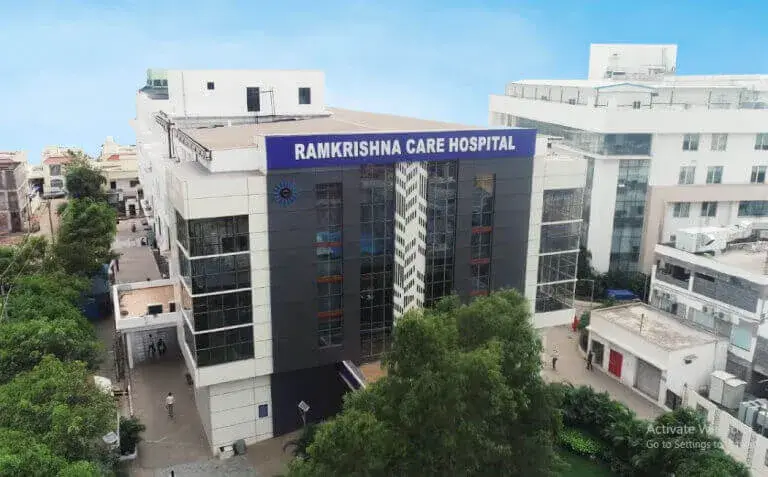
Ramkrishna CARE Hospitals, Raipur
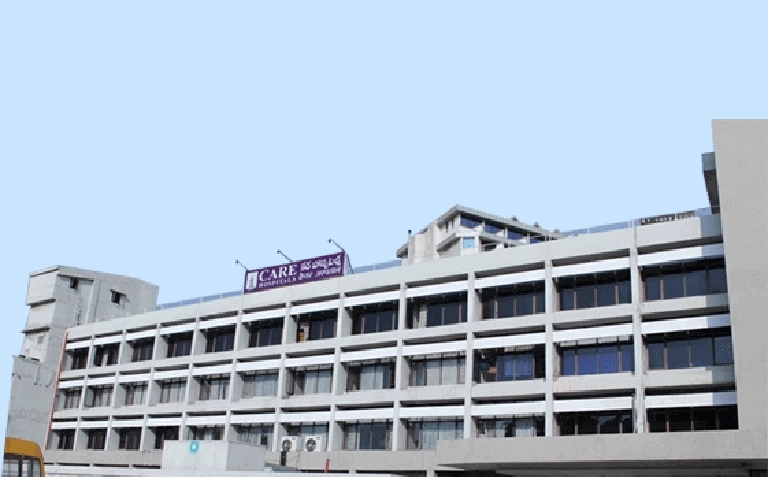
CARE Hospitals, Ramnagar, Visakhapatnam

CARE Hospitals, Health City, Arilova
Frequently Asked Questions
A surgeon removes your cloudy natural lens and puts in an artificial one during cataract surgery. This simple outpatient procedure gives you a clear vision back. It's the only proven way to treat cataracts in adults.
The surgery itself takes just 10 to 15 minutes. You will need to stay at the hospital for about two to three hours from check-in to discharge.
Complications don't happen often, but some potential risks include infection, bleeding, and swelling. Serious complications are rare:
- Retinal detachment
- Severe eye infection
- Permanent vision loss
- Artificial lens displacement
Your vision should improve within 24 hours after surgery. Full recovery usually takes four to six weeks.
Yes, it is one of the safest surgeries. Modern techniques and advanced technology have made this procedure even safer.
Cataracts don't cause any pain. Your doctor will use local anaesthetic eye drops during surgery so you won't feel any discomfort.
Cataract procedures differ from major surgeries because they need only local anaesthesia and minimal recovery time instead of overnight hospital stays.
Doctors can treat most complications successfully when patients get prompt medical attention. Patients should get immediate help if they experience:
- Sudden vision loss or persistent blurriness
- Severe eye pain or redness
- Increased eye floaters or light flashes
- Excessive discharge around the eye
Insurance plans cover cataract procedures after patients wait 12-24 months.
Doctors prefer local anaesthesia through eye drops or injections.
Patients can speed up their recovery by:
- Taking prescribed eye drops as scheduled
- Using protective eyewear during the day
- Keeping water away from the operated eye
- Going to all follow-up appointments
Patients should avoid these activities for better healing:
- Rubbing or pressing the eye
- Swimming or using hot tubs
- Bending over or lifting heavy objects
- Using eye makeup
- Getting dust or dirt in their eyes
You can manage early-stage cataracts without surgery. Prescription eyewear or simple lifestyle changes help cope with the original vision changes.
These lifestyle changes might slow down cataract progression:
- Regular eye checkups
- Quality sunglasses that block UV light
- A diet packed with antioxidants
- Good diabetes control
- Limited alcohol consumption
Cataracts develop in 90% of people by age 65.
You can watch TV 24 hours after your surgery. Remember to:
- Take breaks to rest your eyes
- Keep the room well-lit
- Sit at the right distance
Still Have a Question?








